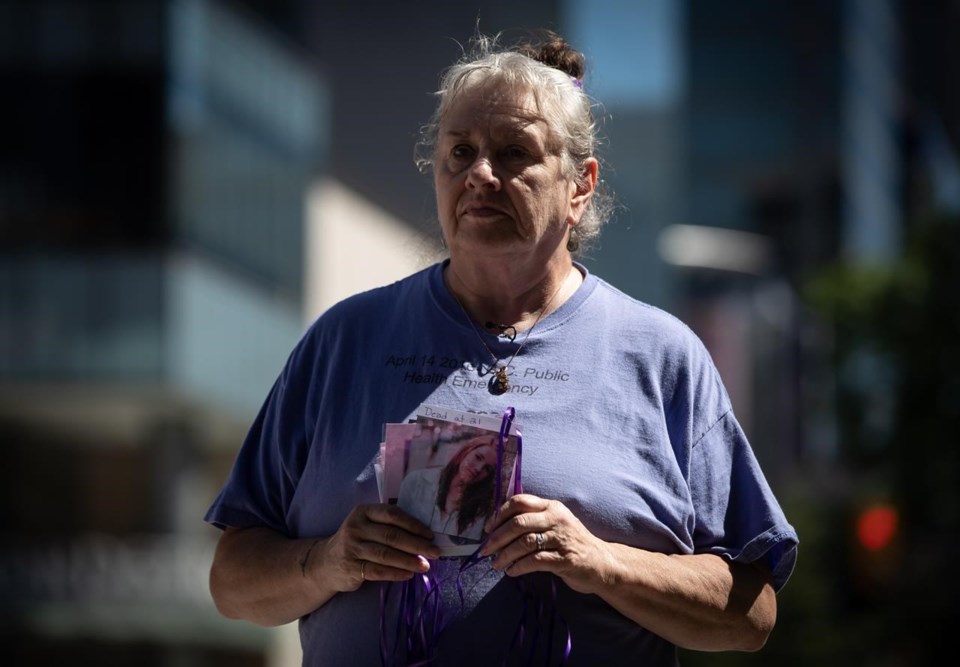VICTORIA — British Columbia has lost more than 10,000 lives to illicit drugs since the province declared a public health emergency in April 2016, chief coroner Lisa Lapointe says.
Lapointe said the province is on track to lose another record number of people to the toxic drug supply this year, with the number of deaths in the first half of 2022 surpassing those of the same period in 2021.
"Illicit fentanyl continues to drive this crisis and, to date in 2022, fentanyl or its analogs have been present in 83 per cent of deaths," she told a news conference Tuesday.
New data from the BC Coroners Service revealed at least 1,095 residents are believed to have died from January to June this year, at an average of six deaths per day.
The report found more than three-quarters of the those who died this year have been male, and most were between the ages of 30 and 59.
Though June saw 146 overdose deaths, representing a 26 per cent decline when compared with May, Lapointe warned this does not mean the crisis is easing.
"We don't put too much weight on one individual month because we know throughout this crisis, we have seen decreases and then we have seen rapid increases. What that reflects is the volatility of the market," she said.
"We know from the July data that is coming in that we will see an increase go right back up again. I think the message really can only be it's unpredictable."
In June, Ottawa approved a three-year exception to federal drug laws, and beginning next year, B.C. will become the first province where people won't be arrested or charged for possessing up to 2.5 grams of certain illicit drugs.
Lapointe applauded the move, but said there is still an urgent need for government to provide access to safer supply across the province.
"Certainly, the conversation is changing. Very sadly though, the toxic drug supply is changing and shifting just as fast," she said.
She referred to a report by a BC Coroners Service death review panel that examined more than 6,000 deaths from illicit drug overdose from August 2017 through July 2021. The report, released in March, found the primary cause of illicit drug overdoses in the province is a combination of an increasingly toxic supply and a current policy framework that it says forces users to unregulated sources.
"It’s only when we drastically reduce people’s reliance on the profit-driven, illicit drug trade that we will save lives and turn the trajectory of this crisis around," Lapointe said.
The latest figures to June 30 bring the death toll since April 2016 to 9,949, but Lapointe said there had been an "increasing numbers of deaths" in July, pushing the tally beyond 10,000.
Guy Felicella, a peer clinical adviser with the Overdose Emergency Response Centre and the BC Centre on Substance Use, is also calling for updated policies and more public education to end stigma associated with drug use. Nothing will change if people can't get the help they need, he said.
"We haven't been able to give people an alternative to the illicit drug supply, whether that's through safe supply, treatment or recovery, and so they die," he said.
The province said illicit drug toxicity is the leading cause of unnatural death in B.C.
— By Brieanna Charlebois in Vancouver.
This report by The Canadian Press was first published Aug. 16, 2022.
The Canadian Press



